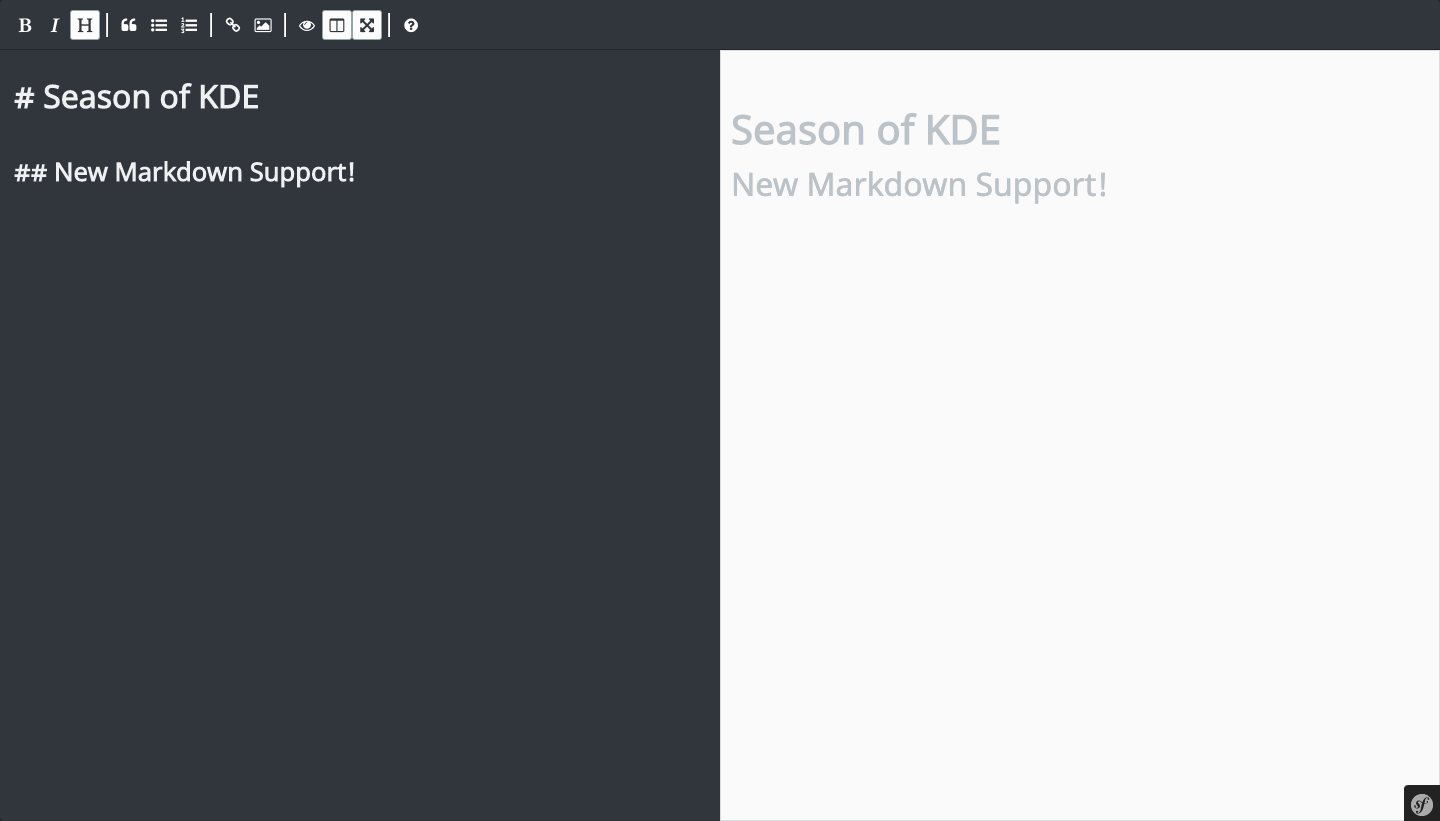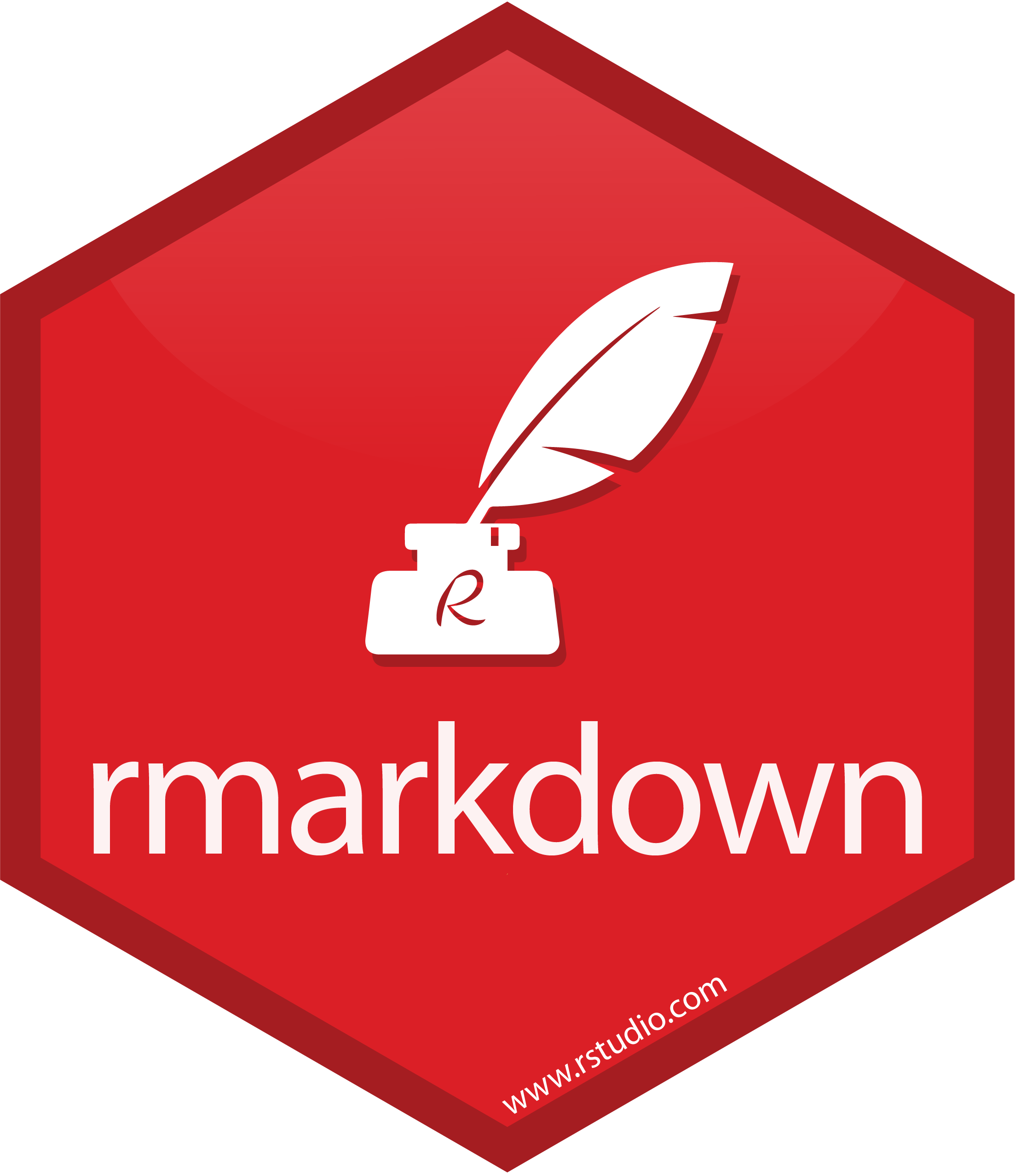
Rmarkdown logo code#
Using the Knit button actually starts a new (empty) R session to render the document, where all the R code is executed and is then closed after rendering. You might have noticed that each time we render our document with the Knit button, none of the R objects appear in the current R session. 'asis' prints raw results without special formatting.'hold' prints all of the output of the entire code chunk together at the end.'hide' suppress printing of the output.

'markup' prints the output with special formatting per the document type.
Rmarkdown logo how to#
results:( 'markup') how to print results (note use of single quotes for setting values).Differs from eval in that if include=FALSE, the R code is still evaluated, but nothing is printed to the document. include:( TRUE) whether to include the R code and output in the document.eval=1:3 evaluates only the first 3 lines of code. Can be set to vector of numbers to evaluate only specific lines of the code, e.g. eval:( TRUE) whether or not to evaluate (run) the R code chunk.Can be set to a vector of numbers to print only specific lines of code. echo:( TRUE) whether to print the R code to the document.Here are some options to control our output (default of option specified in parentheses): By default, echo is set to TRUE, but often we do not want our audience to see the underlying R code. This will make it easier to copy-and-paste code.Ĭommon chunk options to control text outputĪs we saw, echo=FALSE suppresses printing of the R code. Go ahead and press the ‘k’ key to disable advancing with mouse click. Click the Knit button after finishing all instructions within a block to view the results of your modifications. Text that appears blockquoted like this is a set of instructions to alter an R Markdown file. Buttons and menus in RStudio will also appear formatted this way. Text that appears with this typeface and background is usually code syntax you can use when authoring your R Markdown files. This seminar does not attempt to explain all of the R code used in the example reports. YAML coding to control the output document type and its appearance.knitr options to format R code and output.The rest of the seminar focuses on R Markdown sytnax, specifically: This seminar aims to teach the user basic R Markdown syntax to make beautiful, reproducible reports.įirst we will discuss what R Markdown is, how it is used, and how it works.




 0 kommentar(er)
0 kommentar(er)
